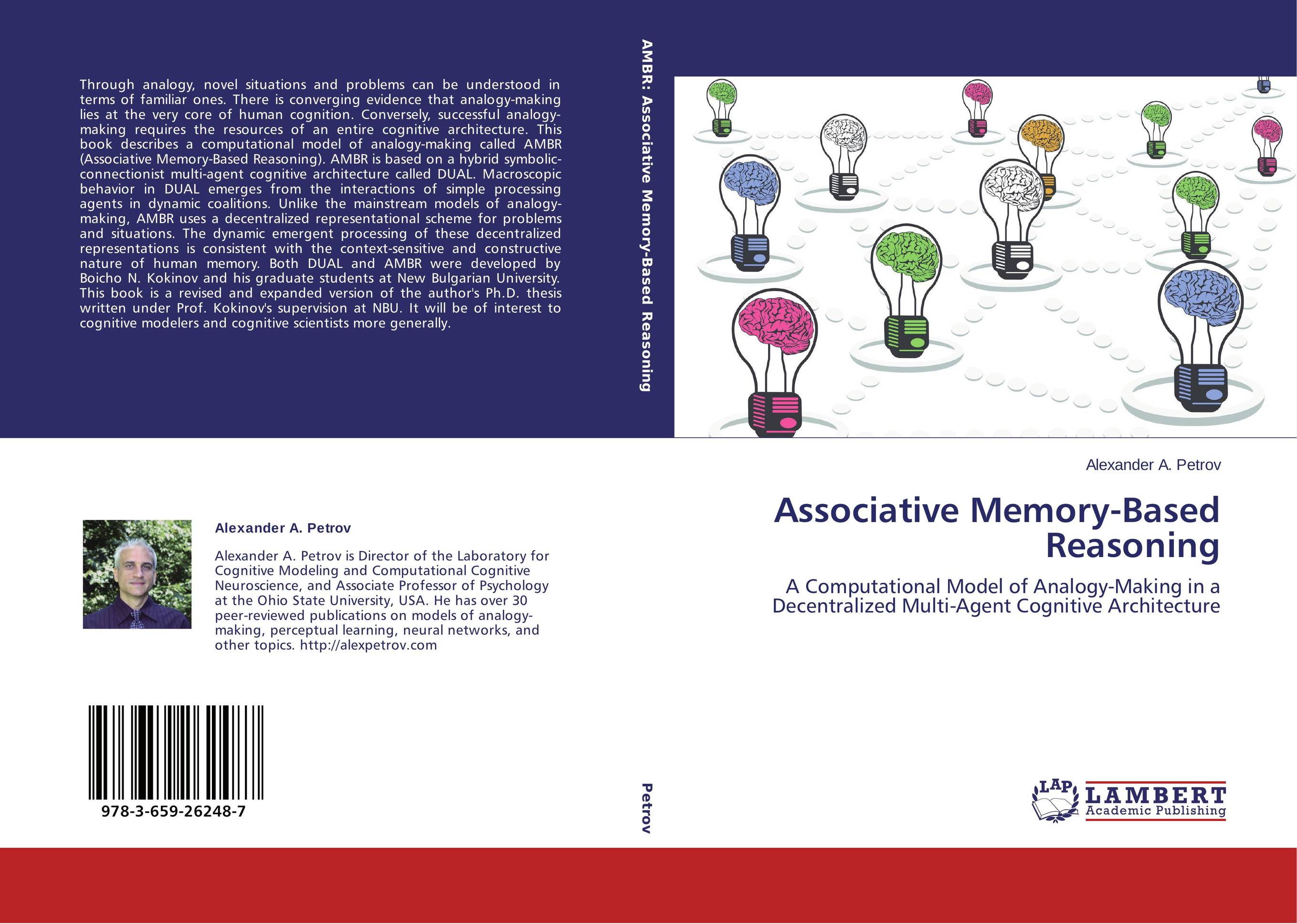| Поиск по каталогу |
|
(строгое соответствие)
|
- Профессиональная
- Научно-популярная
- Художественная
- Публицистика
- Детская
- Искусство
- Хобби, семья, дом
- Спорт
- Путеводители
- Блокноты, тетради, открытки
Associative Memory-Based Reasoning. A Computational Model of Analogy-Making in a Decentralized Multi-Agent Cognitive Architecture

В наличии
| Местонахождение: Алматы | Состояние экземпляра: новый |

Бумажная
версия
версия
Автор: Alexander A. Petrov
ISBN: 9783659262487
Год издания: 2013
Формат книги: 60×90/16 (145×215 мм)
Количество страниц: 212
Издательство: LAP LAMBERT Academic Publishing
Цена: 31512 тг
Положить в корзину
| Способы доставки в город Алматы * комплектация (срок до отгрузки) не более 2 рабочих дней |
| Самовывоз из города Алматы (пункты самовывоза партнёра CDEK) |
| Курьерская доставка CDEK из города Москва |
| Доставка Почтой России из города Москва |
Аннотация: Through analogy, novel situations and problems can be understood in terms of familiar ones. There is converging evidence that analogy-making lies at the very core of human cognition. Conversely, successful analogy-making requires the resources of an entire cognitive architecture. This book describes a computational model of analogy-making called AMBR (Associative Memory-Based Reasoning). AMBR is based on a hybrid symbolic-connectionist multi-agent cognitive architecture called DUAL. Macroscopic behavior in DUAL emerges from the interactions of simple processing agents in dynamic coalitions. Unlike the mainstream models of analogy-making, AMBR uses a decentralized representational scheme for problems and situations. The dynamic emergent processing of these decentralized representations is consistent with the context-sensitive and constructive nature of human memory. Both DUAL and AMBR were developed by Boicho N. Kokinov and his graduate students at New Bulgarian University. This book is a revised and expanded version of the author's Ph.D. thesis written under Prof. Kokinov's supervision at NBU. It will be of interest to cognitive modelers and cognitive scientists more generally.
Ключевые слова: artificial intelligence, Problem Solving, Emergence, cognitive architecture, analogy, relational reasoning, Connectionism, context sensitivity, Constructive Memory, decentralized representation



